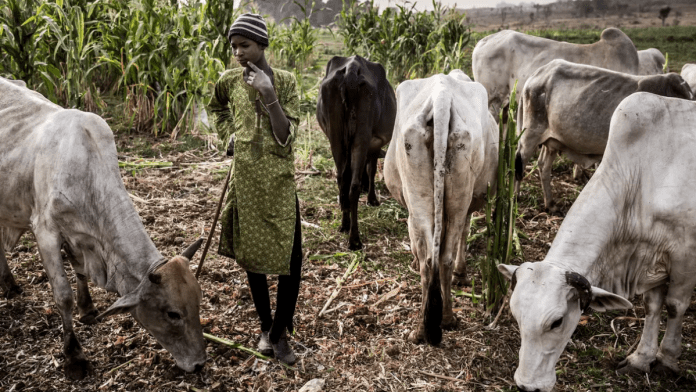News in brief: Edo State inaugurated the National Animal Identification and Traceability System (NAITS) to track livestock and address herder-farmer conflicts, with hopes of improving management and productivity.
The Edo State Government has inaugurated the National Animal Identification and Traceability System (NAITS) on Tuesday, 24 October 2023. This system will aid in creating a database of livestock and other information on production for the purpose of traceability in the state.
The inauguration took place during the 5th National Animal Husbandry Development Committee meeting held in Benin, according to a news report. It is part of the federal government’s initiative to address the herder-farmer crisis in different parts of the country.
The NAITS is a unique identification system for livestock that will help to track the movement of animals and identify straying ones. It is hoped that this will reduce conflicts between herders and farmers, as well as improve the management of livestock and boost productivity.
Speaking at the inauguration, Edo State Governor Godwin Obaseki, represented by the state Commissioner for Agriculture and Food Security, Stephen Idehenre, said that the system would go a long way in solving the farmers and herders crisis in the country. He urged all stakeholders to cooperate with the government to ensure the success of the system.
The NAITS system is being implemented by the Edo State Government in partnership with Nigeria’s federal government and MEGACORP, as a technical partner.
Additionally, Idehenre announced the creation of the Department of Animal Husbandry Services in the Ministry of Agriculture and Food Security to strengthen the state’s agricultural transformation.
He used the opportunity to highlight other moves that the administration has been making in the sector including providing 70,000 hectares of land to private investors for oil production. Also, he revealed that the state has a deal with animal production companies like Heifer Internation and Amo Farms Sieberer Harchery Limited to empower 200,000 smallholder farmers within the next seven years. Amo Farms is being positioned as an off-taker to process 10,000 birds daily from farmers in the state.
At the inauguration, Permanent Secretary, Federal Ministry of Agriculture and Food Security, Ernest Umakhihe, reminded delegates that the livestock industry is very important. He mentioned that it represented about 40% of the world’s agricultural gross domestic product (GDP), 33% of its protein intake and provides income for more than a billion people.
Nigeria is in pole position in Africa in terms of livestock production as it has the largest number, Umakhile reminded, but more need to be done to tap into the potential â¦33 trillion market. One big step, according to him, is for all states to launch the NAITS as well to discourage rustling.
With a centralised livestock system, data collection and analysis can go along way in pushing the subsector towards optimal levels.



